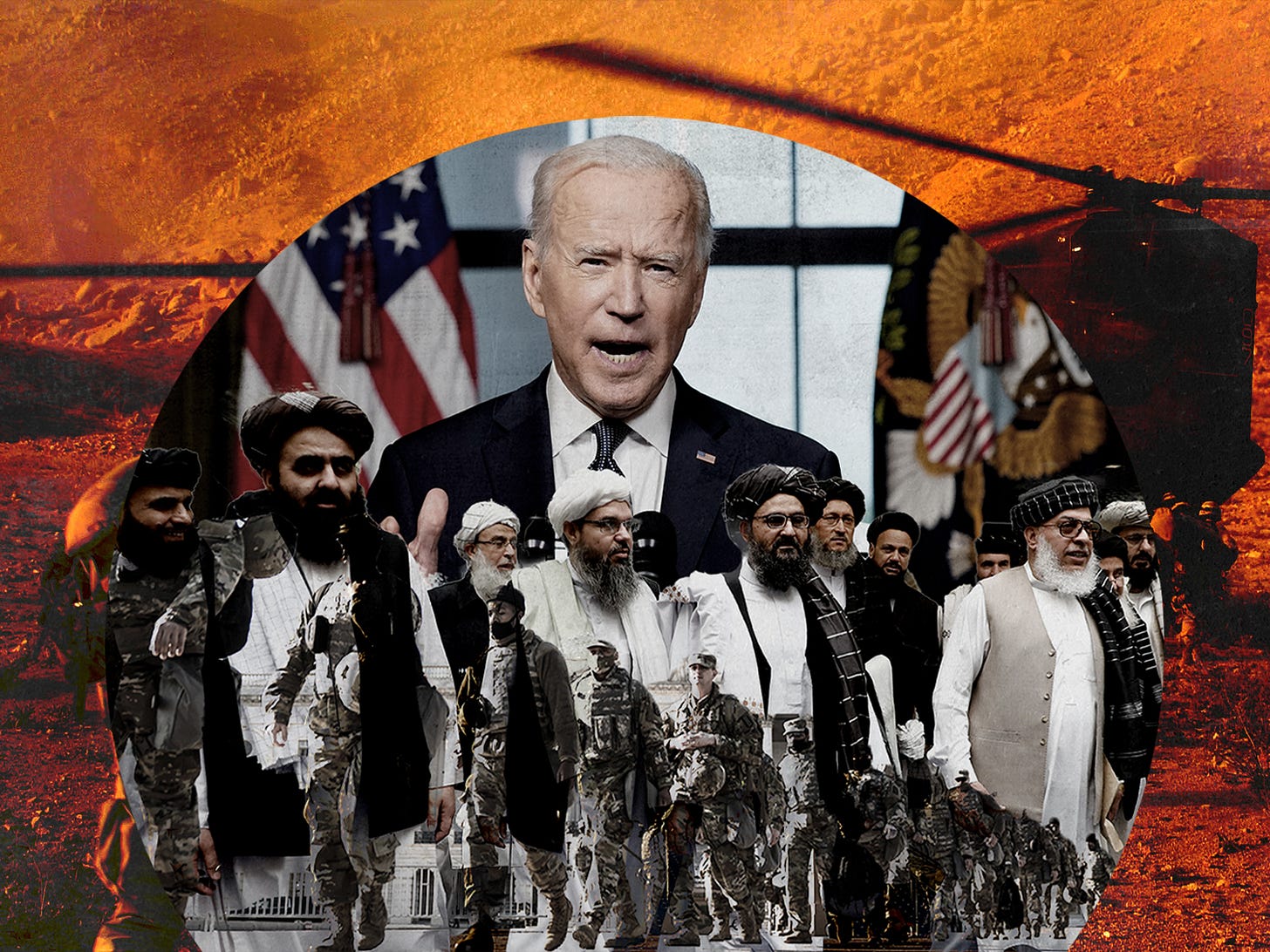An Open Letter to Joe Biden on Afghanistan
It’s not too late to change course, protect America’s interests, and stop a humanitarian disaster.
The situation in Afghanistan is dire. But it is not too late to deploy forces to stabilize it, and ultimately turn it around. We can at least avoid the worst outcome, a collapse and slaughter that would be a catastrophe for the people of Afghanistan and a strategic and moral disaster for the United States.
We know this is doable: General John Allen, who served as commander of the International Security Assistance Force from 2011 to 2013, laid out a realistic plan for salvaging the situation and avoiding the complete collapse of Kabul. Would a bold intervention now commit us to sustain a military presence in Afghanistan indefinitely? Not necessarily, but there is a strong case for an enduring military presence there, in order to combat terrorists and help defend our nation, as well as to honor our alliance with the people of Afghanistan.
It may be tempting to believe that jihadist terrorism is no longer a serious threat because there have been no successful, large-scale terrorist attacks inside the United States originating from Afghanistan since 2001.
But that success must be credited, in part, to our ongoing military operations in Afghanistan and the region, which kept Al Qaeda and its allies on the run, in hiding, and focused on their own survival rather than on planning operations against us. Al Qaeda, the Islamic State, the Taliban—and other groups—are active and even thriving as we withdraw, and they have not fulfilled their obligations under the 2020 peace agreement. Without our help, our enemies are almost certain to regain a safe haven from which to organize and plot.
We also have a duty to stand by our Afghan allies who continue to fight our common enemies. We promised as much when we signed strategic partnership agreements with them in 2005 and 2012 and a bilateral security agreement in 2013, and when we designated them a major non-NATO ally. Withdrawal from Afghanistan is abandoning our allies in the middle of the fight. What would such abandonment tell the world about American character and reliability in future moments when we look to make alliances in our strategic interests?
The United States has made mistakes in Afghanistan during the past 20 years. But we should not let errors from the past lead to even worse mistakes today. If we lose Afghanistan, we will lose our ability to combat terrorists in the region. Our nation will be less safe. And we will have failed our allies who need our support.
It is not too late for the Biden administration to reconsider—and to act.


